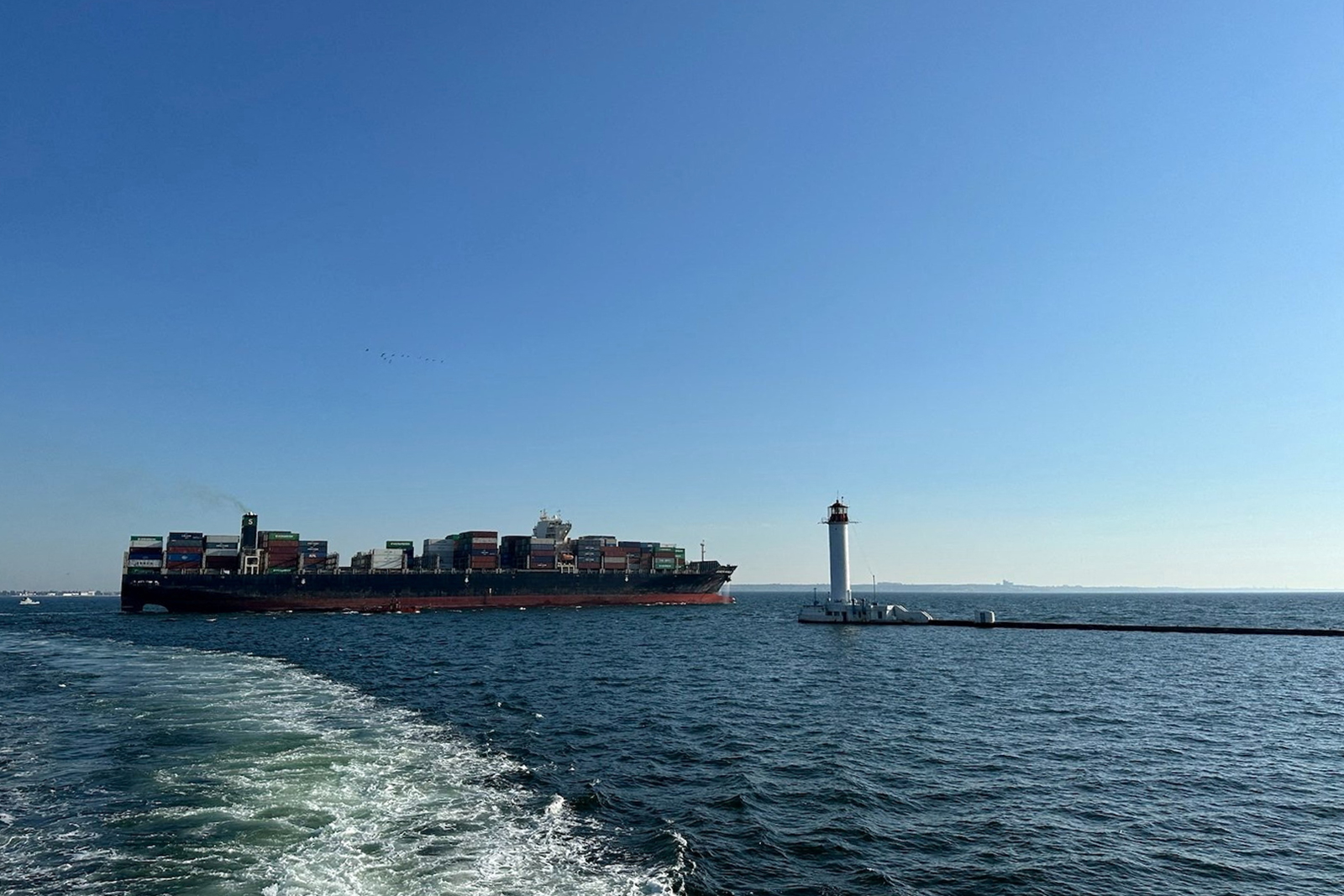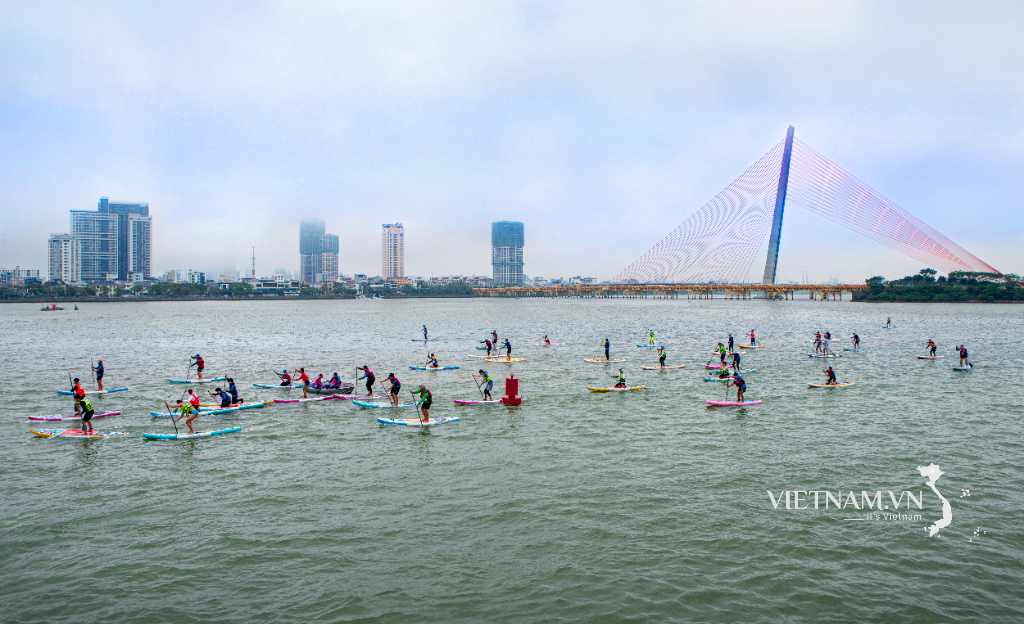Ukraine is facing a serious situation in the Black Sea as the waterway is completely closed to Kyiv. This is the assessment of Oleg Soskin, who served as an advisor to former Ukrainian President Leonid Kuchma (1994-2005).
“Ukraine is in a very difficult situation, frankly, I would call it a pocket of fire… The seas have been closed and the situation in the Black Sea is very serious,” Soskin said in a video posted on his YouTube channel on September 16.
Mr. Soskin added that the only way out for Ukraine's agricultural exports is through Bulgaria, Moldova, and Romania. However, he believes that the decision by Hungary, Poland, and Slovakia to extend the ban on importing Ukrainian grain is a "stab in the back."
"We must call things by their true nature. This is a geopolitical and geoeconomic blow, and it is unprecedented," Soskin said, assessing the actions of Ukraine's neighbors.
"In reality, this is an open geopolitical war against Ukraine," the former advisor emphasized. In his view, Ukrainian President Volodymyr Zelensky and the current administration are unprepared for all of this.
The grain agreement between Russia and Ukraine, brokered by the United Nations and Turkey, expired on July 17. The Russian Ministry of Defense subsequently warned that from July 20, Moscow would consider all ships transiting the Black Sea to Ukrainian ports as potentially carrying military cargo, and that countries flying flags on such vessels would be considered parties involved in the conflict in Ukraine and siding with the Kiev government.

The container ship JOSEPH SCHULTE (registered in Hong Kong, China) leaves the port of Odessa, Ukraine, in a photo posted on Facebook by Ukrainian Deputy Prime Minister Oleksandr Kubrakov on August 16, 2023. Photo: CNN
On August 10, the Ukrainian Navy announced the opening of temporary corridors in the Black Sea for merchant ships heading to or from the ports of Chernomorsk, Odessa, and Yuzhny. Kyiv warned that the risk of military attack and collisions with drifting mines remains on this route, so only ships with officially certified owners and captains ready to sail under such conditions will be allowed to navigate these waters.
On September 15, the European Commission (EC) decided not to extend the ban on imports of grain and other agricultural products from Ukraine after the ban expired on the same date, but requested Kyiv to submit an action plan to avoid distorting the market in EU countries. Shortly afterward, Hungary, Poland, and Slovakia announced unilateral restrictions on grain imports from Ukraine.
Ukrainian President Zelensky declared he would retaliate against “neighbors who violate EU rules.”
Hungary, Poland, and Slovakia argue that the continued oversupply of imports from Ukraine is driving down domestic prices and pushing some local farmers to the brink of bankruptcy. With highly competitive general elections approaching in both Poland and Slovakia in a few weeks, neither Warsaw nor Bratislava want to antagonize their large farming communities.
In Poland, the new ban includes not only four types of grains but also products made from corn, wheat, and rapeseed. Hungary has imposed a ban on imports of 24 Ukrainian agricultural products, including grains, vegetables, some meat products, and honey.
The ban only affects imports into the Polish, Slovak, and Hungarian markets. These three countries will still allow Ukrainian grain to transit through their territories en route to third countries via the “Solidarity Corridor.” This route transported approximately 60% of Ukraine’s grain exports last year, including 4 million tons. The remaining 40% passed through the Black Sea, but this channel has been disrupted since the collapse of the Black Sea Grain Initiative .
Minh Duc (According to TASS, GZero Media)
Source


![[Photo] Prime Minister Pham Minh Chinh receives Lao Minister of Education and Sports Thongsalith Mangnormek](/_next/image?url=https%3A%2F%2Fvphoto.vietnam.vn%2Fthumb%2F1200x675%2Fvietnam%2Fresource%2FIMAGE%2F2025%2F12%2F16%2F1765876834721_dsc-7519-jpg.webp&w=3840&q=75)

![[Image] Leaked images ahead of the 2025 Community Action Awards gala.](/_next/image?url=https%3A%2F%2Fvphoto.vietnam.vn%2Fthumb%2F1200x675%2Fvietnam%2Fresource%2FIMAGE%2F2025%2F12%2F16%2F1765882828720_ndo_br_thiet-ke-chua-co-ten-45-png.webp&w=3840&q=75)
![[Photo] Prime Minister Pham Minh Chinh receives the Governor of Tochigi Province (Japan)](/_next/image?url=https%3A%2F%2Fvphoto.vietnam.vn%2Fthumb%2F1200x675%2Fvietnam%2Fresource%2FIMAGE%2F2025%2F12%2F16%2F1765892133176_dsc-8082-6425-jpg.webp&w=3840&q=75)

![[Live] 2025 Community Action Awards Gala](/_next/image?url=https%3A%2F%2Fvphoto.vietnam.vn%2Fthumb%2F1200x675%2Fvietnam%2Fresource%2FIMAGE%2F2025%2F12%2F16%2F1765899631650_ndo_tr_z7334013144784-9f9fe10a6d63584c85aff40f2957c250-jpg.webp&w=3840&q=75)































































![[Photo] Prime Minister Pham Minh Chinh attends the Vietnam Economic Forum 2025](https://vphoto.vietnam.vn/thumb/402x226/vietnam/resource/IMAGE/2025/12/16/1765893035503_ndo_br_dsc-8043-jpg.webp)






































Comment (0)